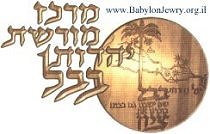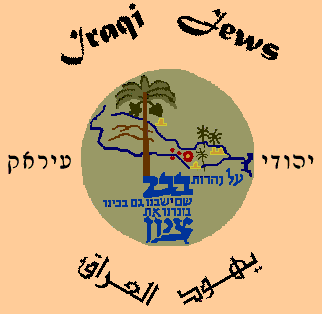Edward Ben Eliezer
After the British invasion of Baghdad in May of 1941 the reaction of the city’s Arab population was swift and pointed. Violence was unleashed on the Jewish population including Edward Ben Eliezer and his family.
The Farhood (revenge) came to a ten-year-old Edward with a fury. He was with his grandmother, Masooda, seemingly safe behind the barricaded and triple-locked door of their house that was full of valuables. When the mob managed to break through the door, Edward and his grandmother fled to a small attic on the roof. As the mob cleared the home of all its valuables Edward and Masooda cowered under the gunfire coming from the police tower nearby. The indiscriminate shots frightened the violent intruders and kept them from the roof.
After the mob left, Edward and Masooda came down to an empty house. They walked onto the road where Edward saw blood and body parts. They then started running to his father’s house where a group of Shiites stood guarding the door. They were loyal because Edward’s father, Abraham, worked for the English government and had negotiated for the sale of oil in pounds instead of dinars, making many Shiites very rich.
But the Baghdad that Edward remembers is not only one of terror. While he says that he would not go back because of all the bad that came to him and his family, there were days when Baghdad was “wonderful.”
“I had one of the most beautiful childhoods,” Edward, now 75, says. “Every summer I would take friends and we would go rowing to an island [on the Tigris] and we would fish and swim and play all day.”
There was a curve in the river where sand would accumulate until it created an island. “The water was very clear and clean and there were many fish.”
While Baghdad was at times a paradise for Jews like Edward, there were also moments of violence. Once, when he and his older brother, Shalom, were attacked by a group of Muslims, Edward took his belt and started hitting them, but their aggression, which was focused on his brother, did not subside until Shalom was beaten very badly. Edward believes this beating drove Shalom insane. He is now institutionalized in Israel.
In the last months of 1949 Edward was forced to leave his home. He had been a member of the Haggana, an underground group inspired by the corps of Jews from Palestine involved in the British invasion of Baghdad. It was the Haggana that took Edward and Shalom to Mosul, Iraq. In Mosul they stayed with a man who spoke Kurdish and who took them to the Iranian border.
At the border they were shot at and forced to hide in caves. When they attempted to cross again they were arrested, sent back to Mosul and kept in the synagogue that had been converted into a prison.
“Everything works with money,” Edward says. And with some proper bribes they were taken across the border and into Tehran.
There, Edward and Shalom stayed with their cousin who was sending information to Israel using Morse code. They all lived in a large camp set up for European Jews who had fled from the Holocaust.
“There were children everywhere,” he says, “thousands of children from eight to eleven years old.”
From there, he and Shalom traveled to Israel where they stayed on a Kibbutz near the Tool Karem border in the north. Edward remembers having a good rapport with his Arab neighbors. One early morning, an Arab man in a donkey wagon came screaming for help for his sick child.
Edward sent for a nurse to attend to the child, thus forging a tight relationship with his Arab neighbors. In times of harvest they helped each other.
Because of Edward’s experience with the Haggana, the army selected him to spy on the borders. In the south he was bitten by an insect and contracted malaria. To combat the illness, his doctor suggested he move to a better climate in Greece, Italy or Cyprus.
“I decided to do it much better and visited nine countries,” he says with a chuckle. His travels ended in Monterey, California, after ten days in New York City. “I couldn’t handle the hectic life of the people there.”
In Monterey, he quickly became acquainted with the Jewish community and started giving lectures every Friday. The subject was the Palestinian-Israeli conflict. His audiences included many Palestinians who came to like and respect him very much.
“I thought that they were the future of Palestine.”
After Monterey, Edward moved to Santa Cruz to attend Cabrillo College where he enhanced his previous engineering training. There he met his current wife of forty years, Jacqueline.
“The first day I saw him he looked lost,” she says. “I thought he was cute so I grabbed him and didn’t let him go. I made sure of that. I still haven’t let him go.”
Edward later ran a construction firm and acted as an un-ordained rabbi for Walnut Creek’s Jewish community. Today the couple lives in Oakland, California, and they have two grown daughters.




